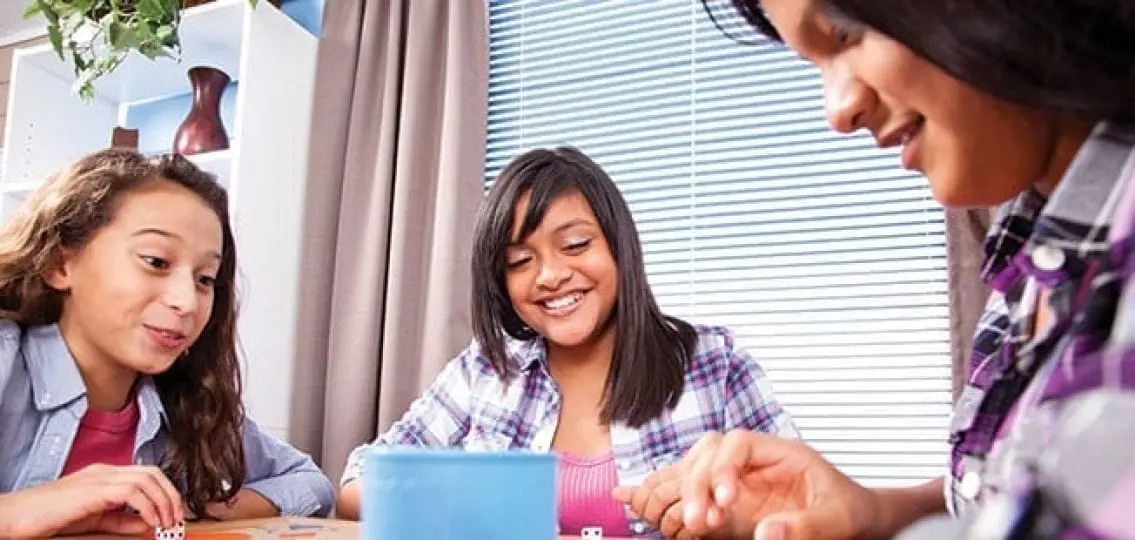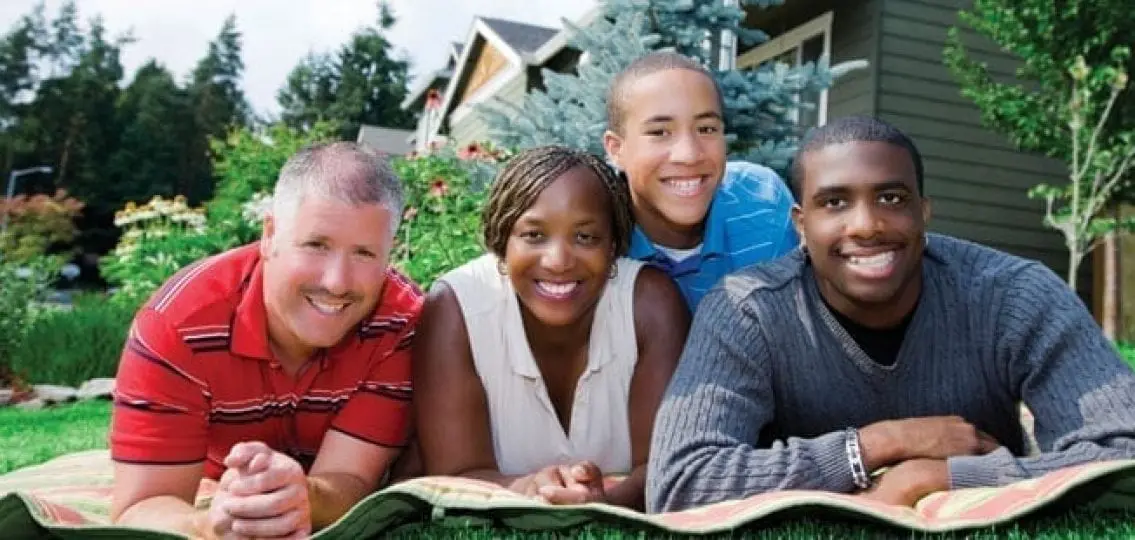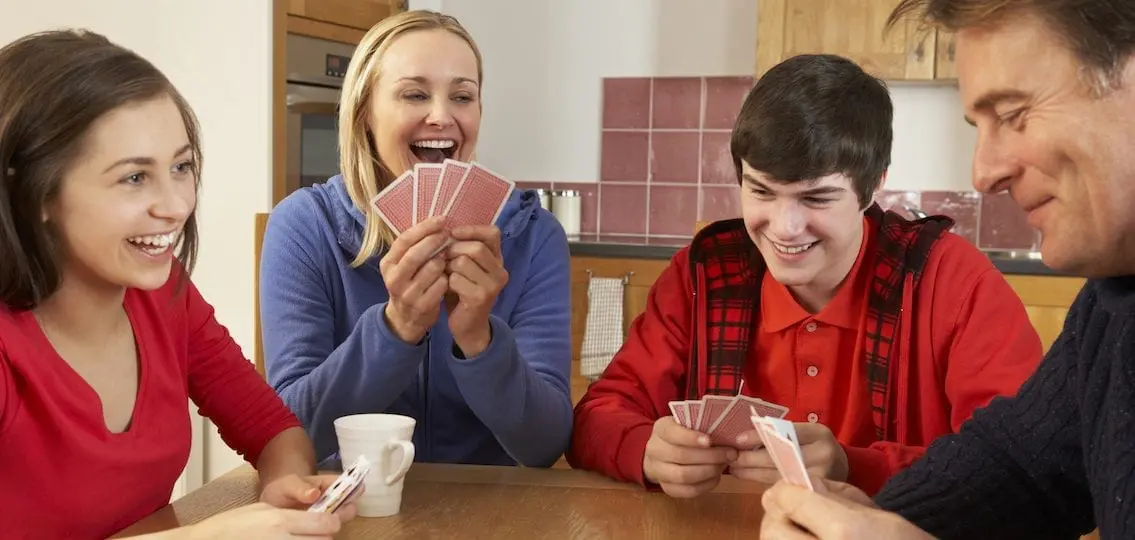What have I gotten myself into was the phrase that ran through my mind over and over as I played our newest board game on Christmas night with my girls. I embrace the saying knowledge is power. But, was this the kind of knowledge I wanted empowering my teens? Had I made a colossal mistake when I presented them with Cards Against Humanity just a few hours earlier?

My face glowed red with embarrassment as my tween spewed profanities the likes of which I never knew existed. My mother, from the next room, tried to shrink into her chair while turning up the TV volume in a futile attempt to filter out the filth coming from the adjacent room where her beloved children and grandchildren played this game around the same table where she taught us to play Candy Land a lifetime ago.
I purchased this game after hearing coworkers gush about how much fun they had playing it with friends and family. They could barely stifle their laughter at the memory of the nights they spent competing with their loved ones. That was the kind of funny our family needed as we navigated the unpredictable emotions of our teenagers. My coworkers all seemed to be upstanding citizens. If it was good enough for them, by gosh, it was good enough for us.
Aside from these stellar reviews, I did zero research before buying it online. Upon its next-day arrival, thanks to my Amazon Prime account, I wrapped it up, unopened, and placed it under the tree.
On Christmas morning I presented it with a big smile anticipating the fun we would have playing the game all day while in our PJs, nibbling Christmas cookies and sipping cocoa. Just like every wholesome all-American family does on Christmas. Right?
Once we figured out the rules and determined who pooped last to see who would go first, I selected my ten cards and turned them over to read my phrases. My eyes burned with the shock of the raunchy, unfamiliar expressions before me. As I slowly processed their meanings, my heart raced and my breath became ragged.
Before I had a chance to absorb everything, the game began. My not so little girls started uttering the most heinous things. Just as I was preparing to shut this game down the most amazing thing happened, we laughed like we never had before. I mean crying eyes, snorting, coughing, pee-your-pants laughing.
It was great!
After a small break to thumb through the cards and remove the most heinous phrases and terms, we resumed play having the best time ever. Aside from the laughter, many good things came from playing this game.
8 Reasons Why Cards Against Humanity is a Great Family Game:
This game, which I had bought on a bit of a whim, has provided our family lots of laughter, and so much more that I never really considered. It has been a way to connect, to better understand each other, and to tackle some important yet awkward topics.
1. Open conversations
Broaching topics that are timely and real, including issues such as sex, racism, politics, violence, and self-worth, promotes frank discussions, debates, explanations, debunking and much more.
2. Hilarity
The stress of raising teens often causes more arguments than laughter. We all need laughter to heal the hurt we unintentionally inflict on one another during these precarious times.
3. Family bonding
Learning to understand each other’s views and perspectives is paramount for a respectful relationship. Respect builds trust and closeness.
4. Pop culture review
Exploring themes found in lyrics and TV shows is part of the game play. The terms in this game help to explain the hidden meanings in the words my daughters sing at the top of their lungs. Understanding what they are singing and watching might help them think twice about singing loudly in public.
5. No shame
Takes the shame away from taboo topics. Removing self-consciousness will empower teens to make better life choices, or just to talk to others when they need advice about the tough stuff like sex and relationships.
6. Values check
Playing together provides opportunity to discuss family morals and values. Finding a natural time for parents to share the beliefs we are trying to instill is difficult. This game provides a noncombative environment to introduce these touchy topics
7. Vocabulary lessons
Kids and adults can navigate the current idioms and slang. Many of the cards I didn’t understand. I was able to ask my girls to enlighten me on the new vernacular. If no one knew, we consulted the urban dictionary, and we learned together. Understanding the current language usages is key in decreasing vulnerability due to ignorance.
8. Sex education
Knowing about all kinds of sex can reduce shame and embarrassment. These cards help parents take sex education from the basics to the specifics, even the weird stuff. Sexuality is complex. Talking about sexuality will help teens be honest with themselves about their own sexuality. Normalizing the differences in sexual urges creates a network of love and support that will extend beyond the confines of the home or family empowering us to stop shaming others and embrace them for who they are.
Each time we play, I’m enlightened. I’ve learned that my oldest knows way more about life than I realized. She’s not so sweet and innocent. Conversely, my youngest remains delightfully unaware of the implications behind the cards she masterfully plays. Somehow, though she knows the least, she’s the undisputed champion.

Maybe I’m wrong. Perhaps knowledge isn’t power. Maybe ignorance is the secret to winning at life. Only time will tell.




